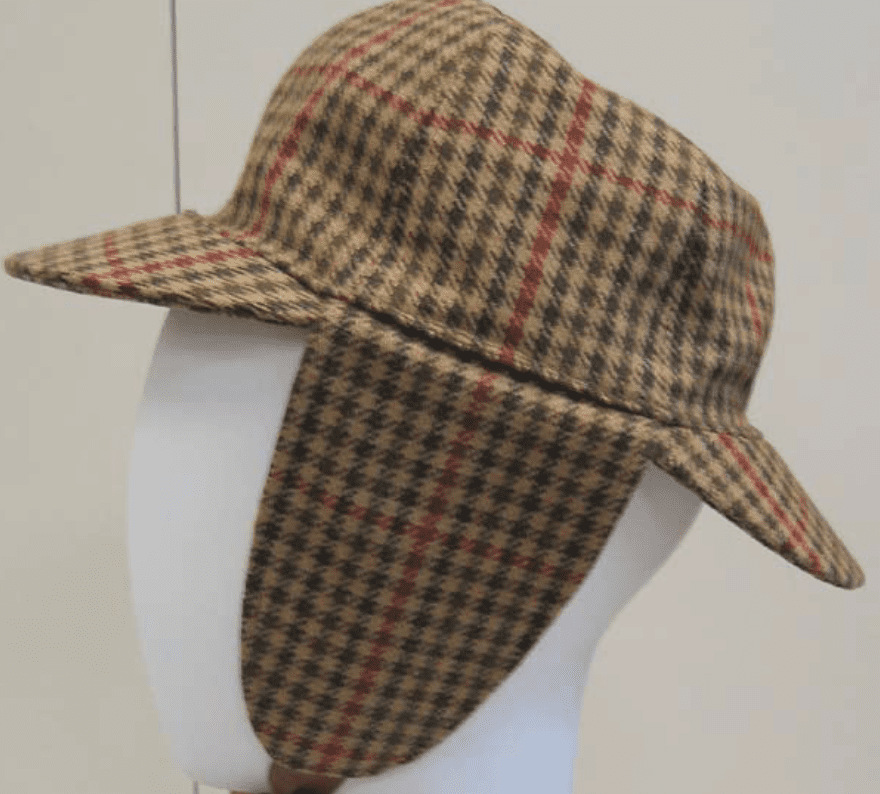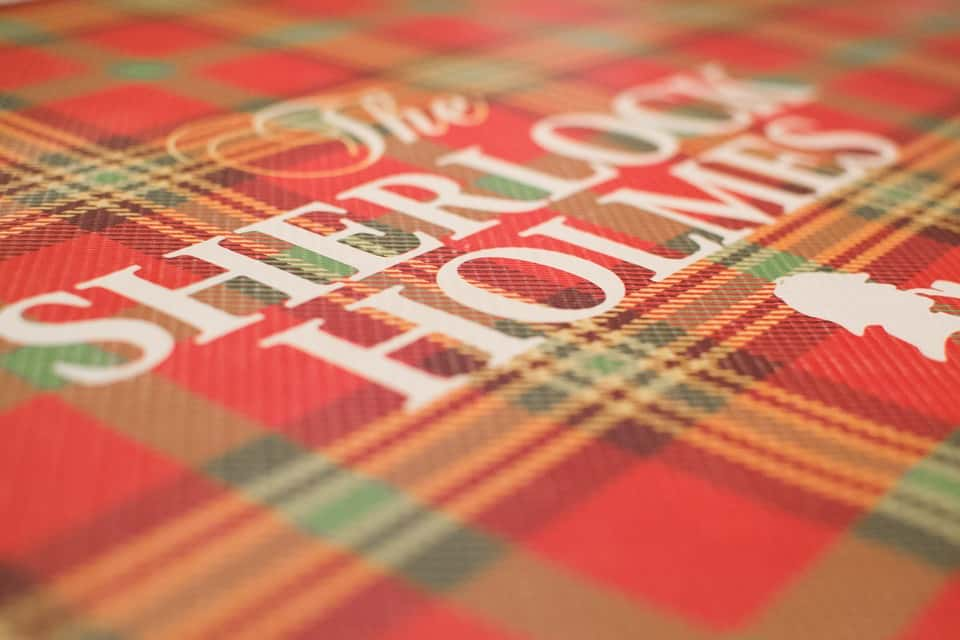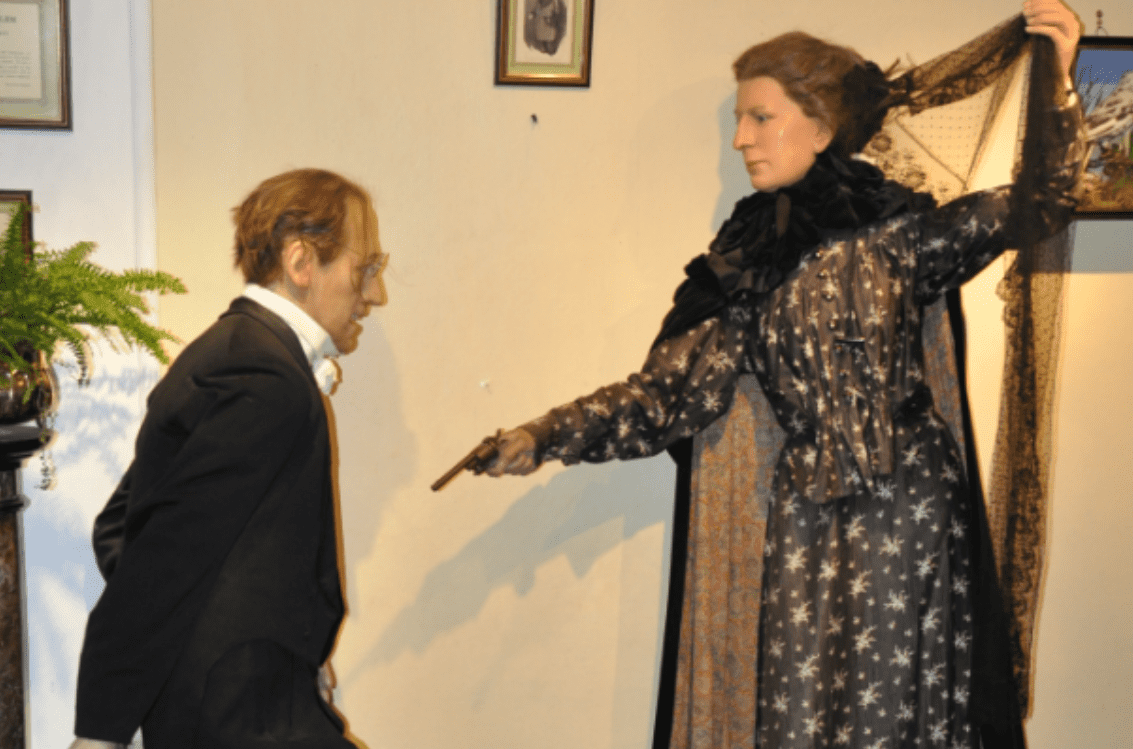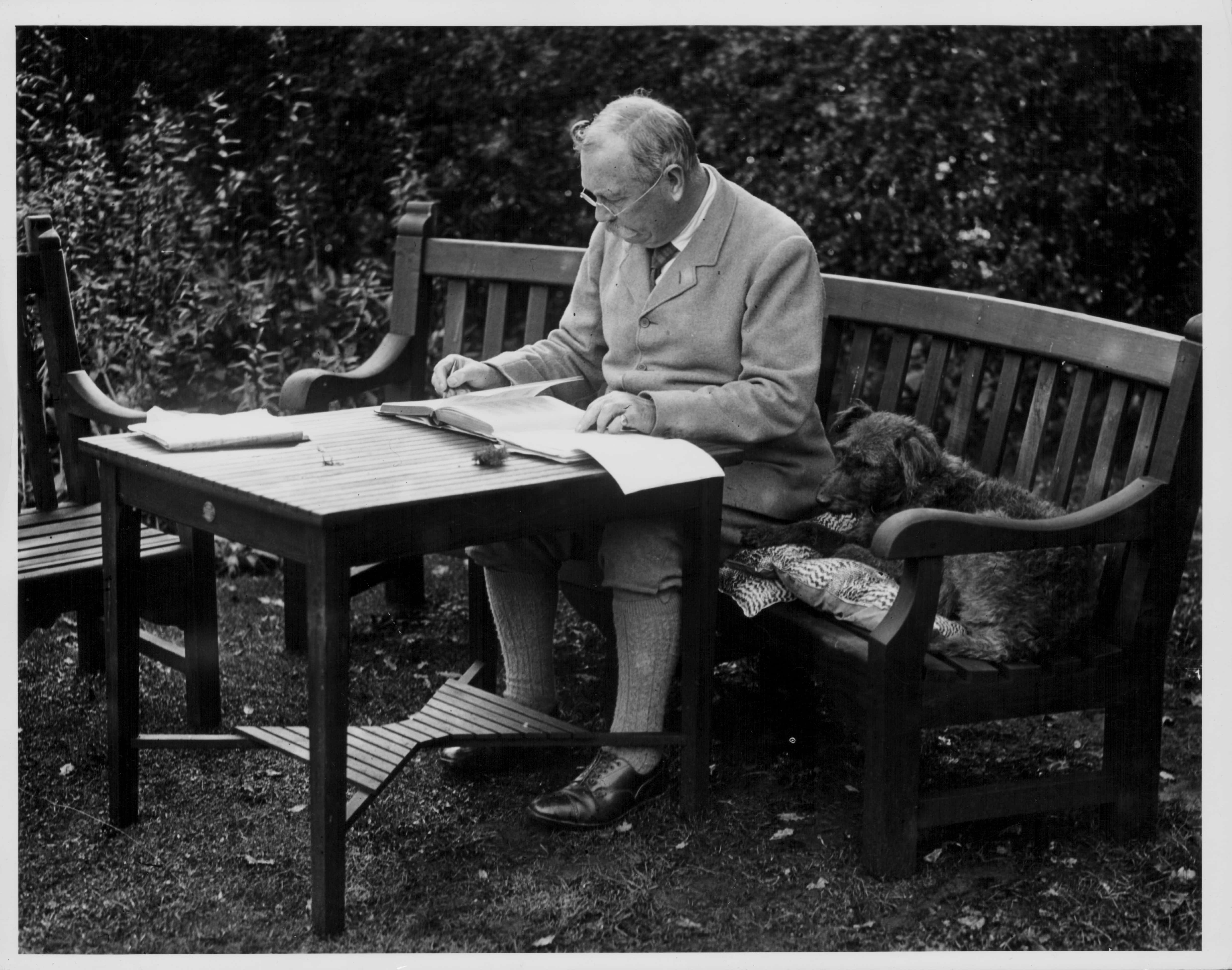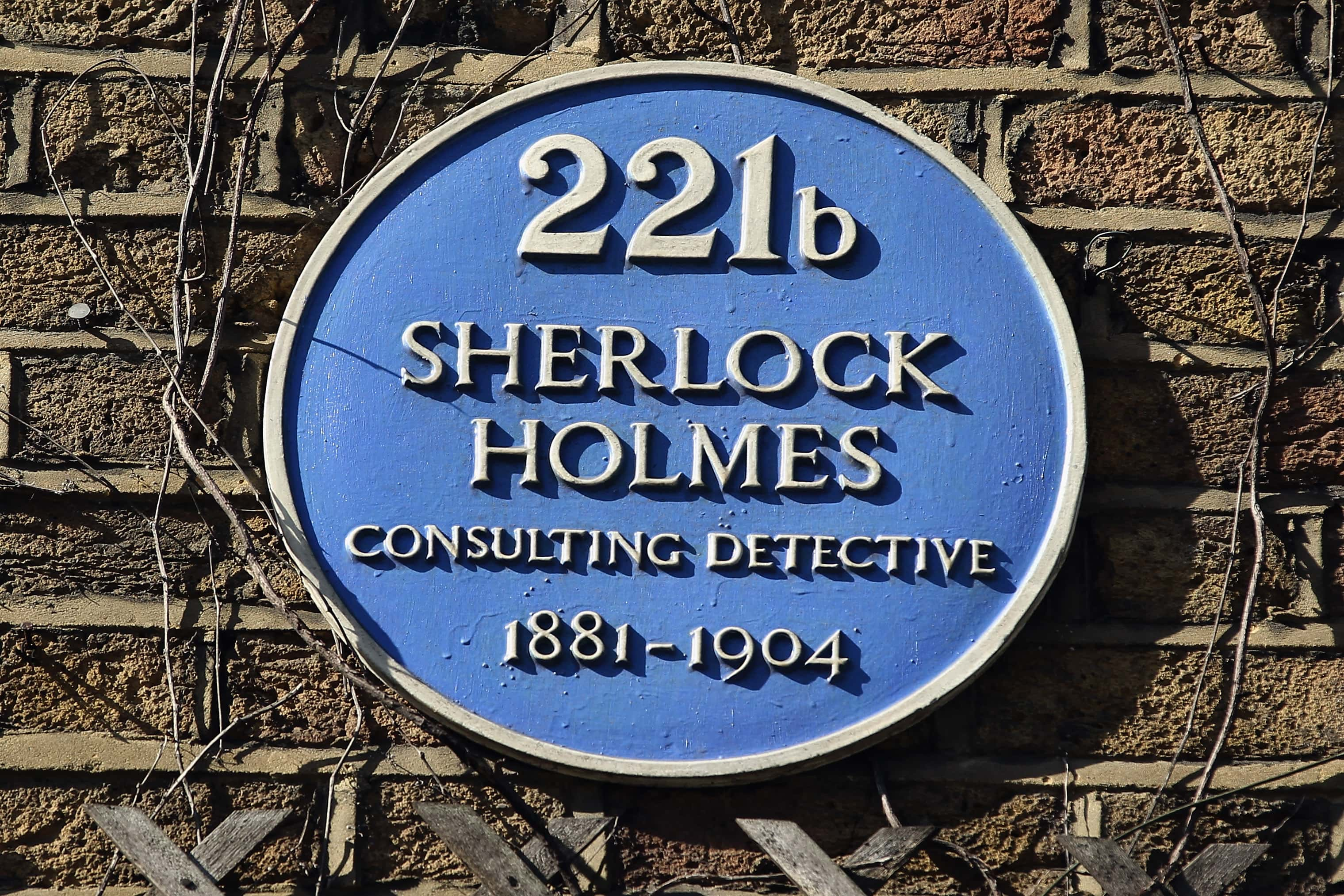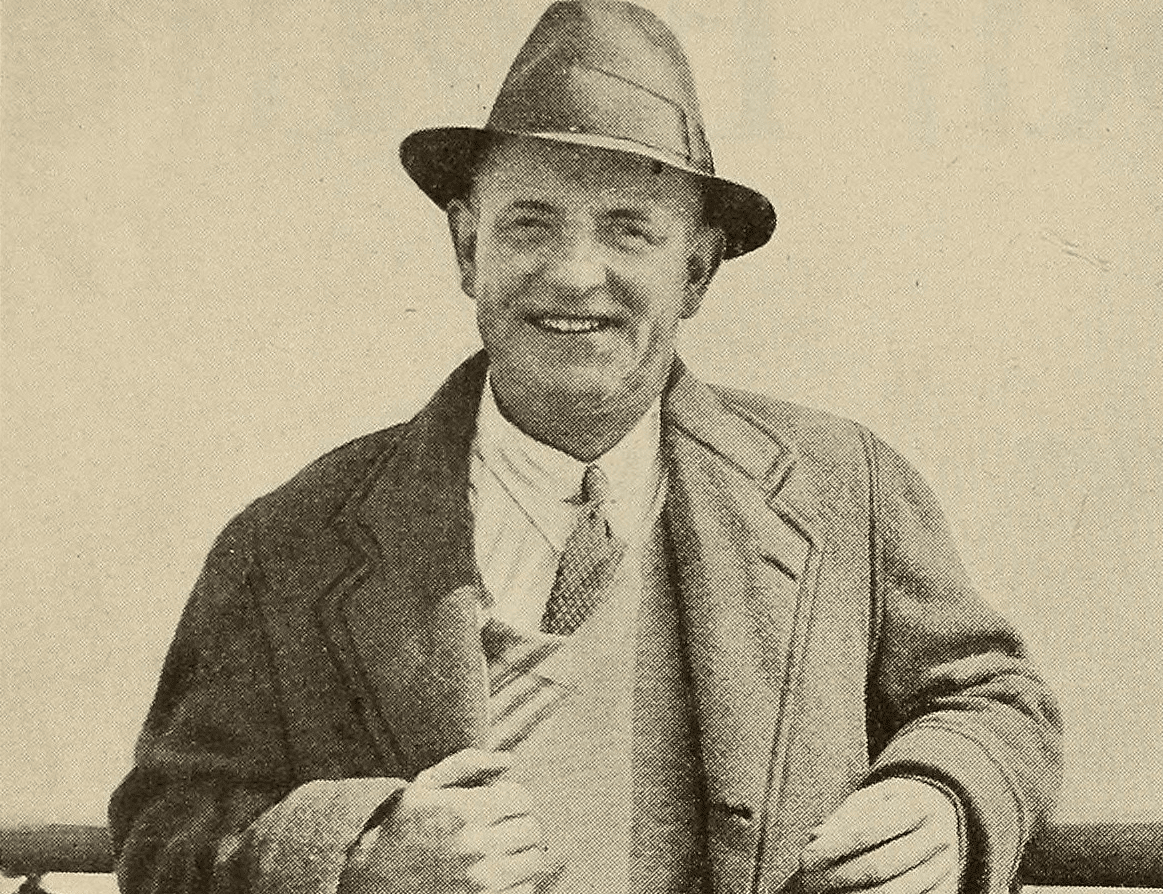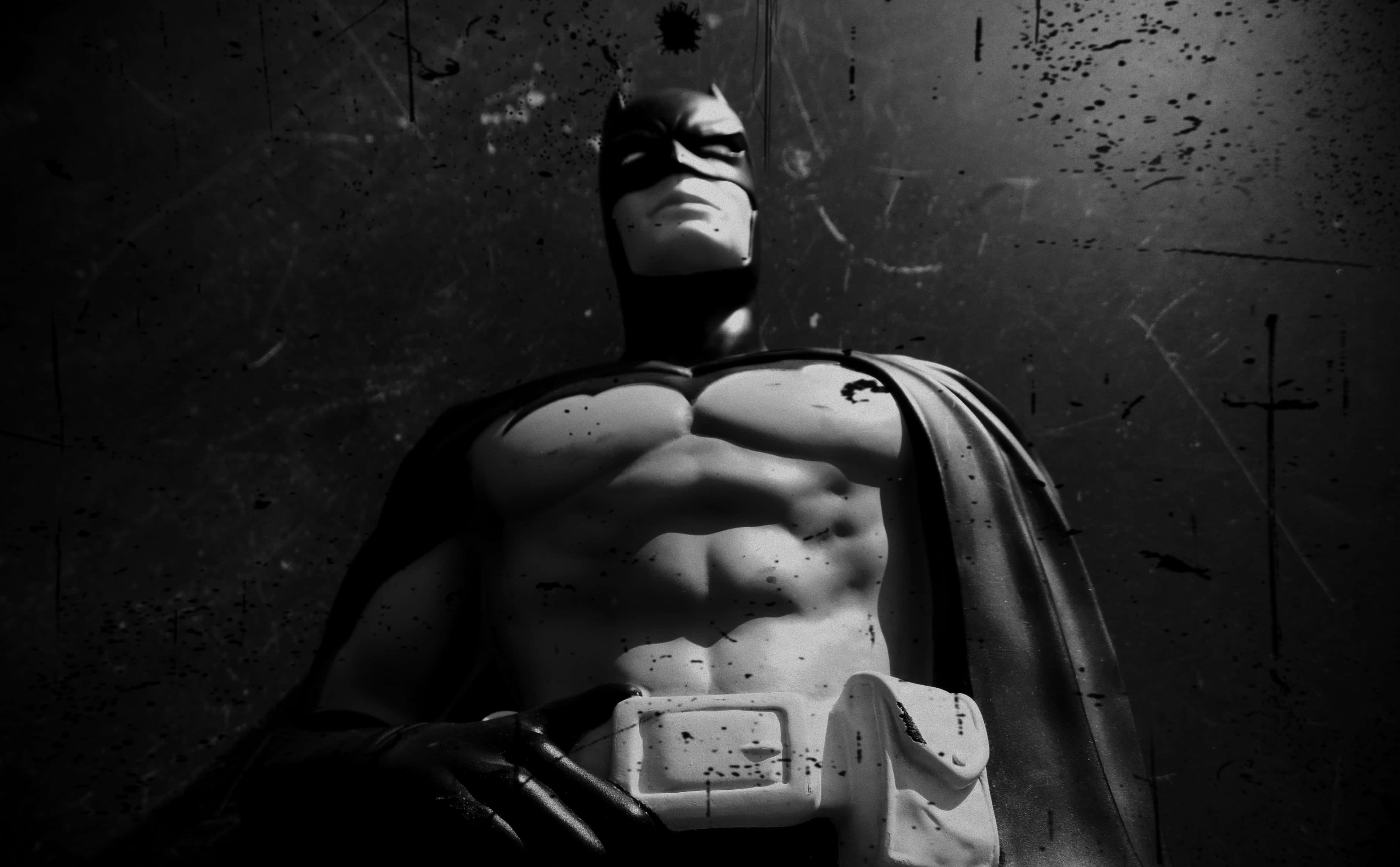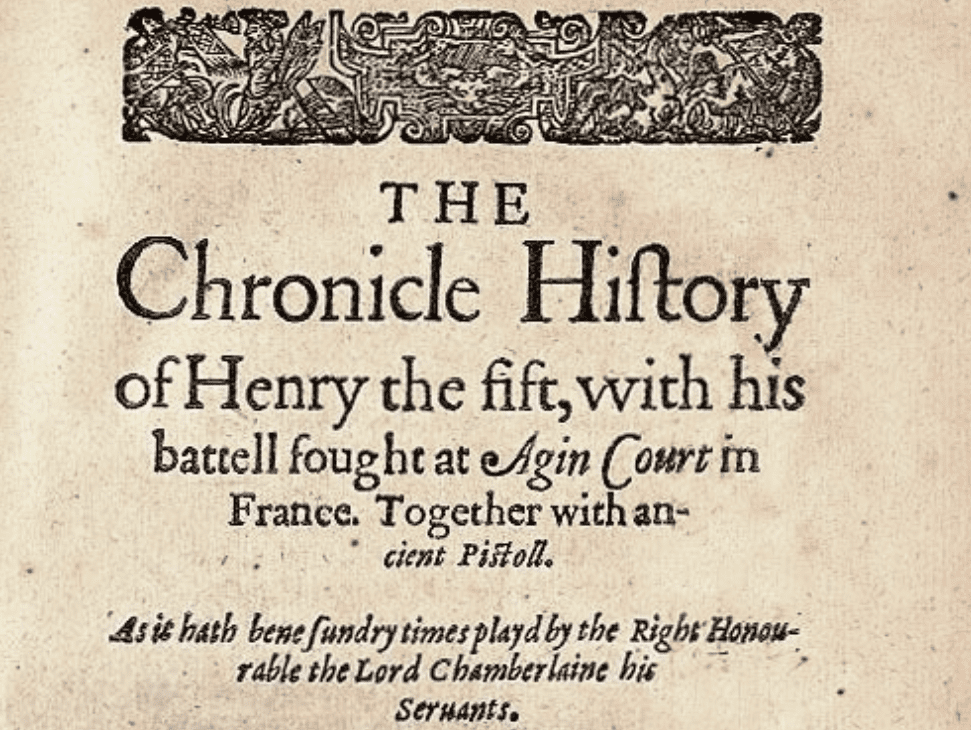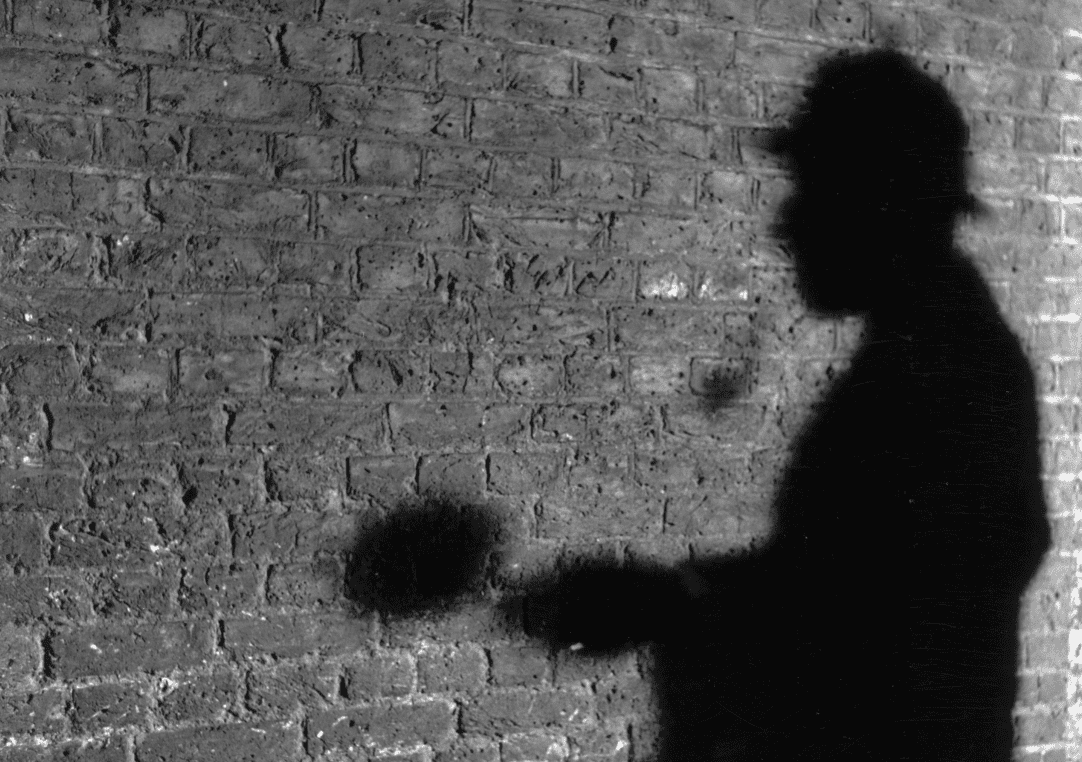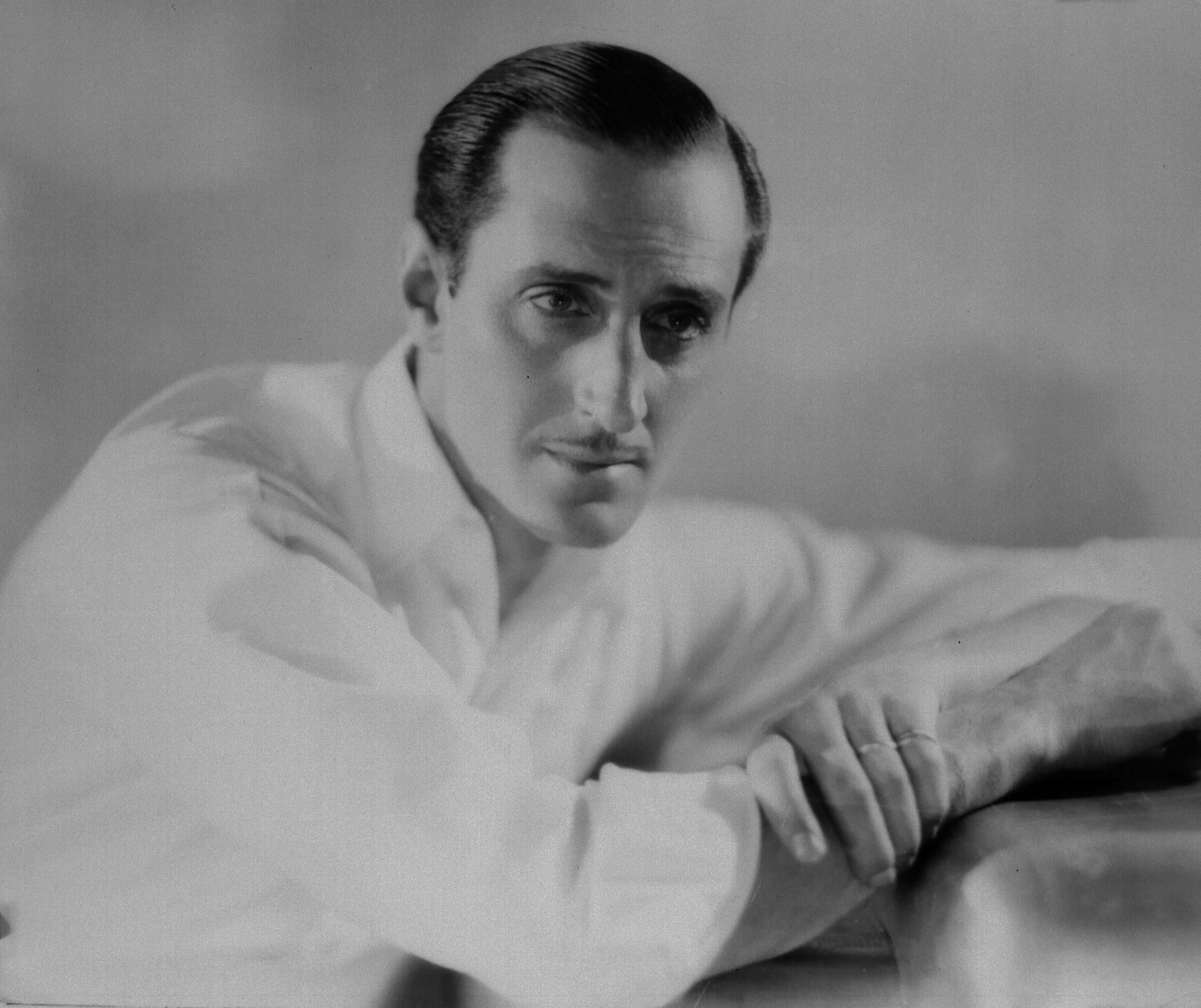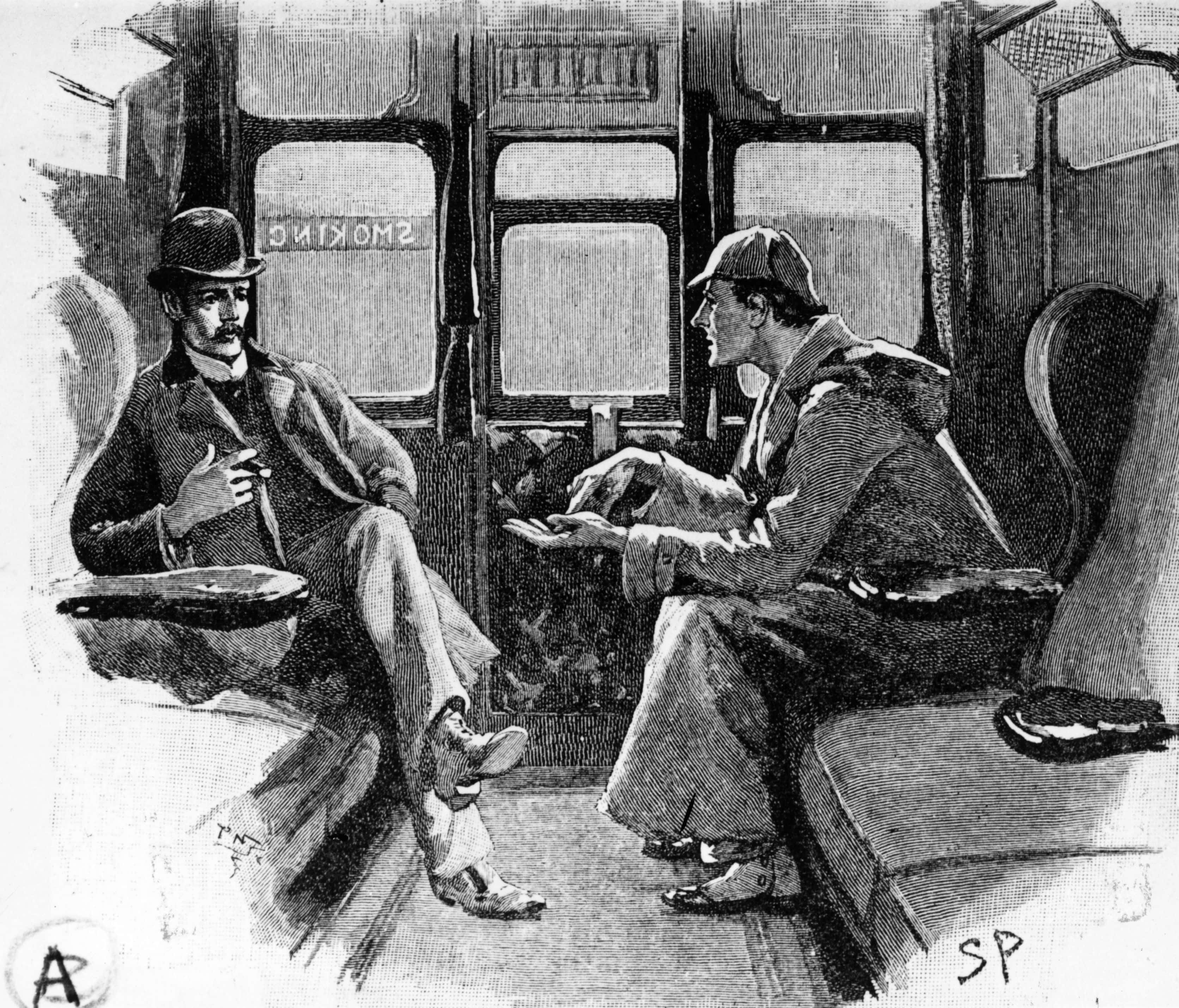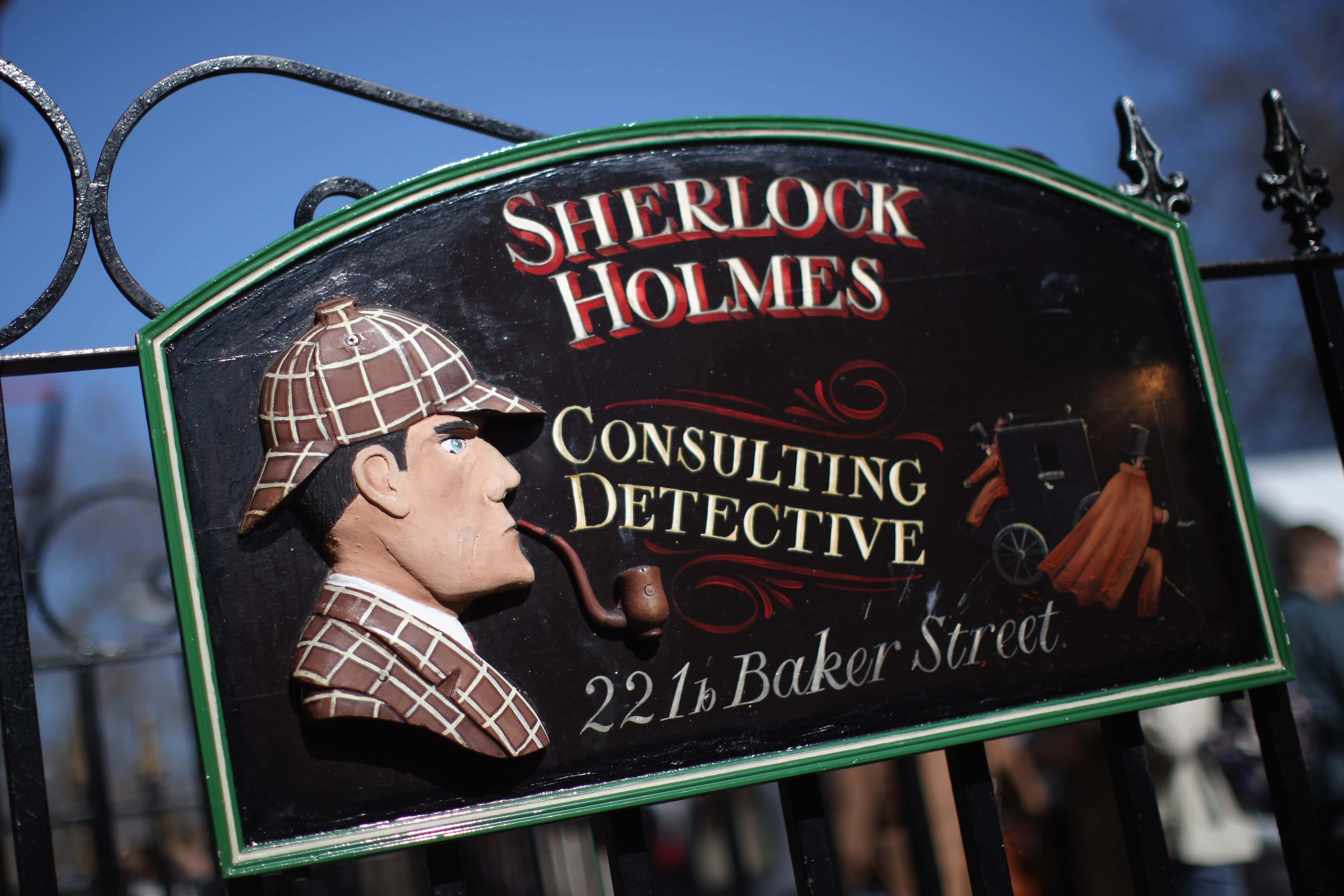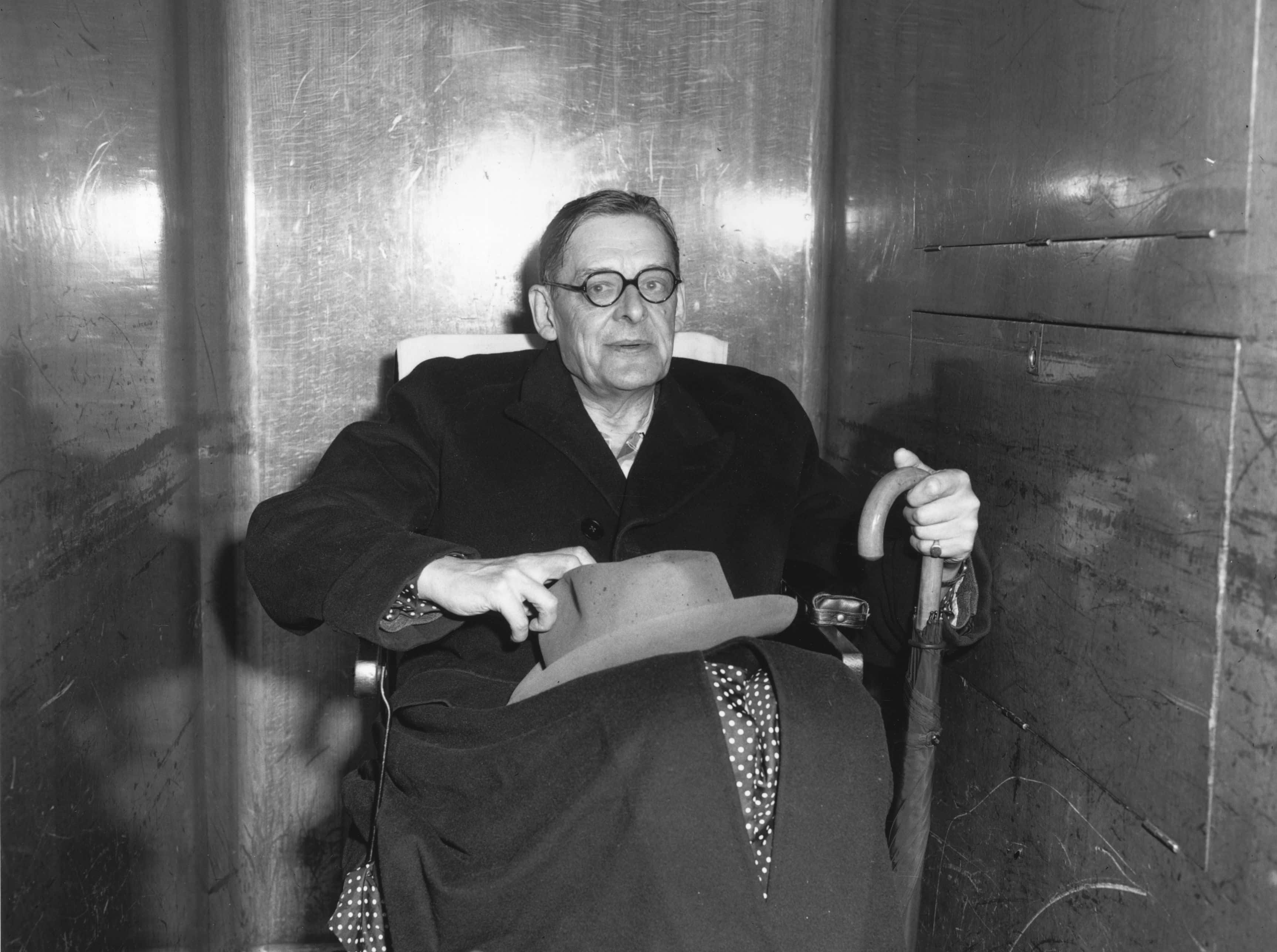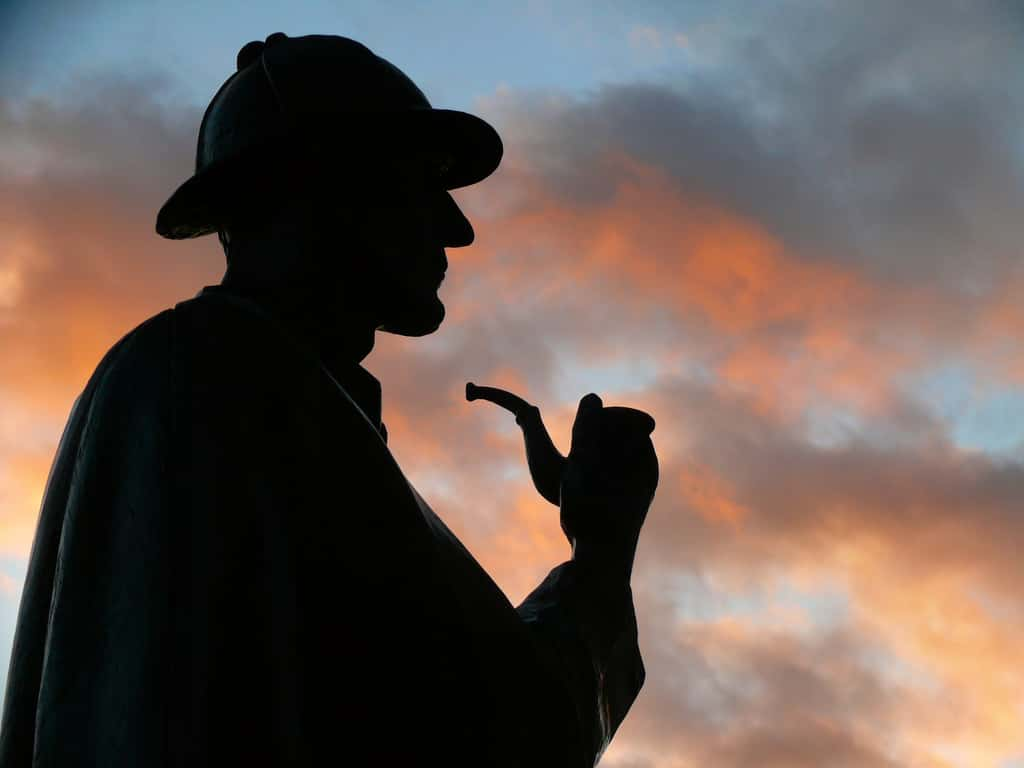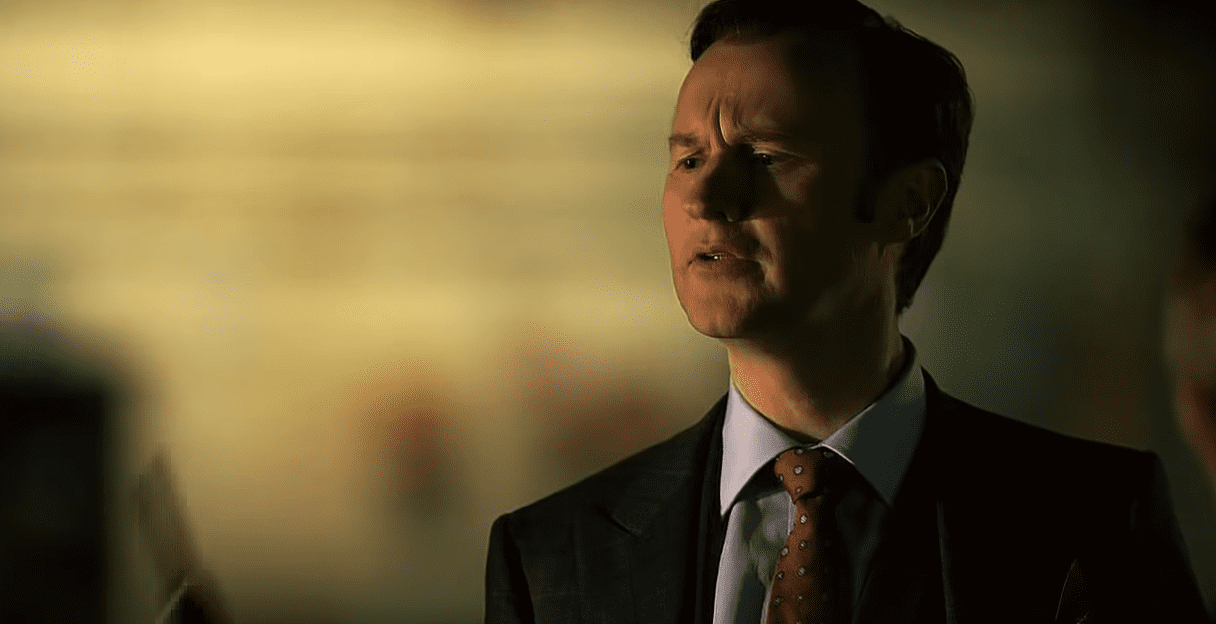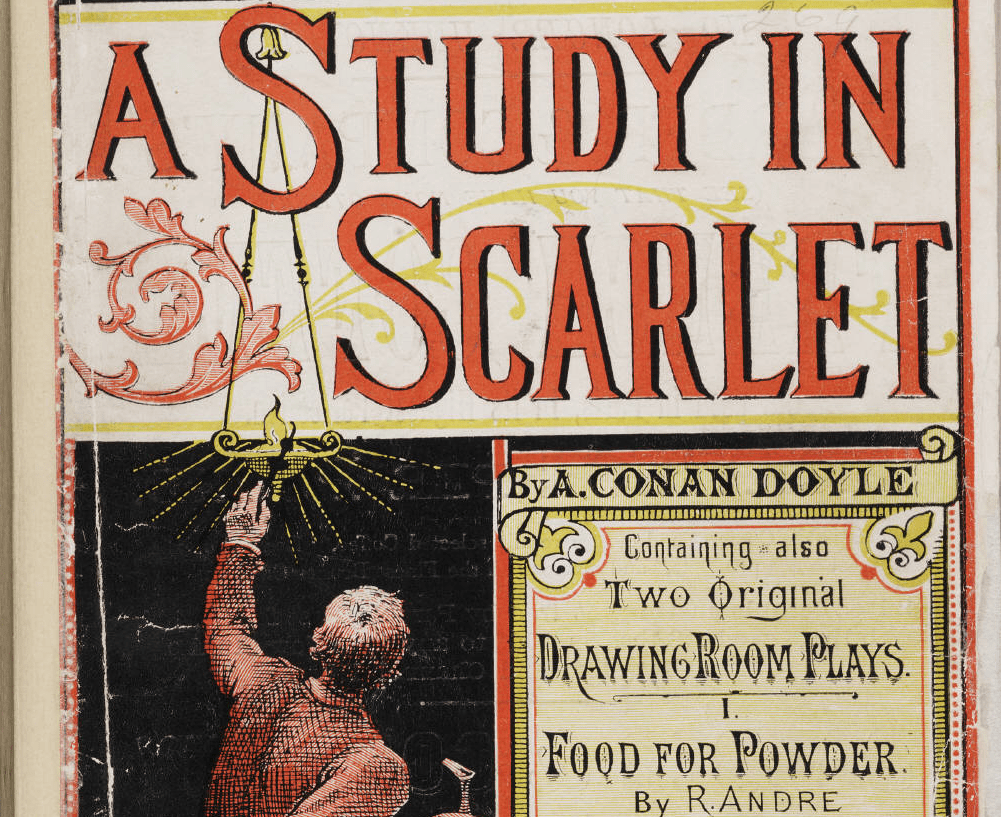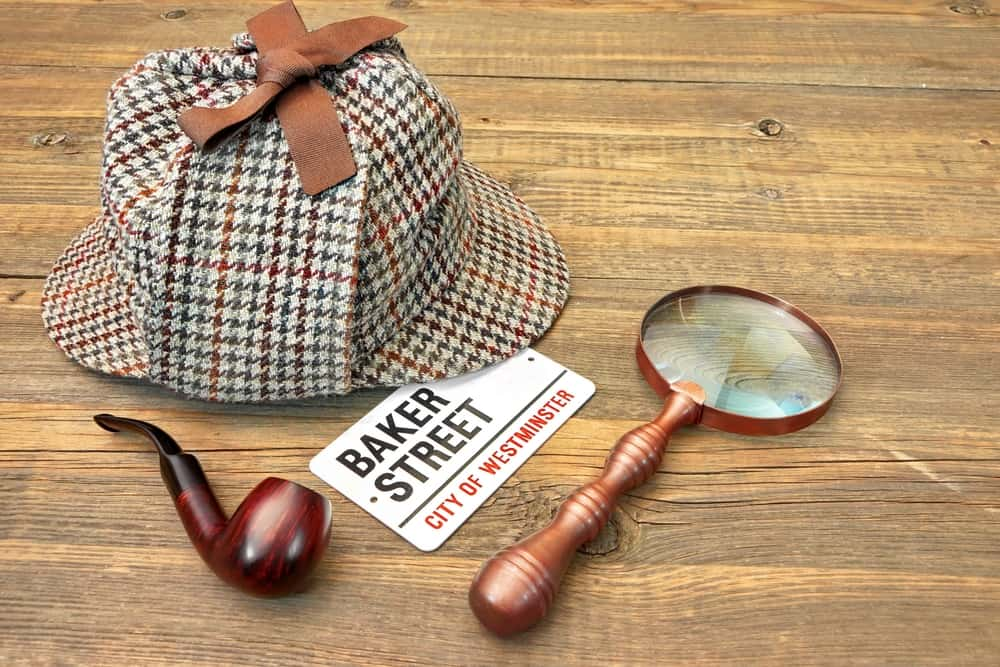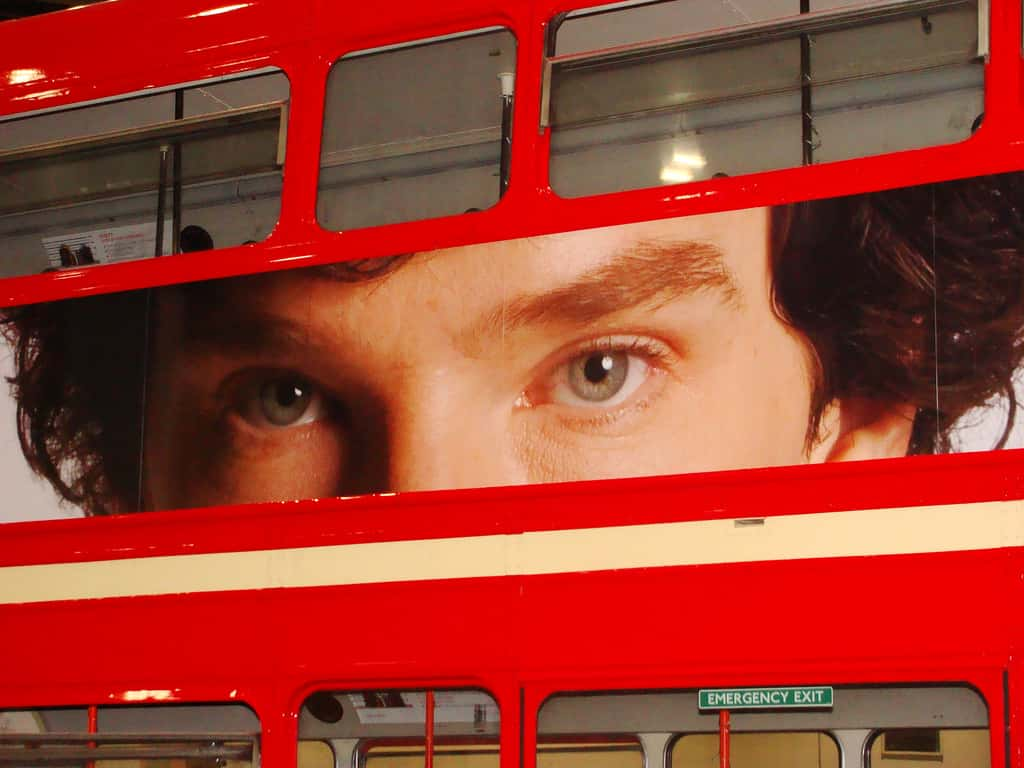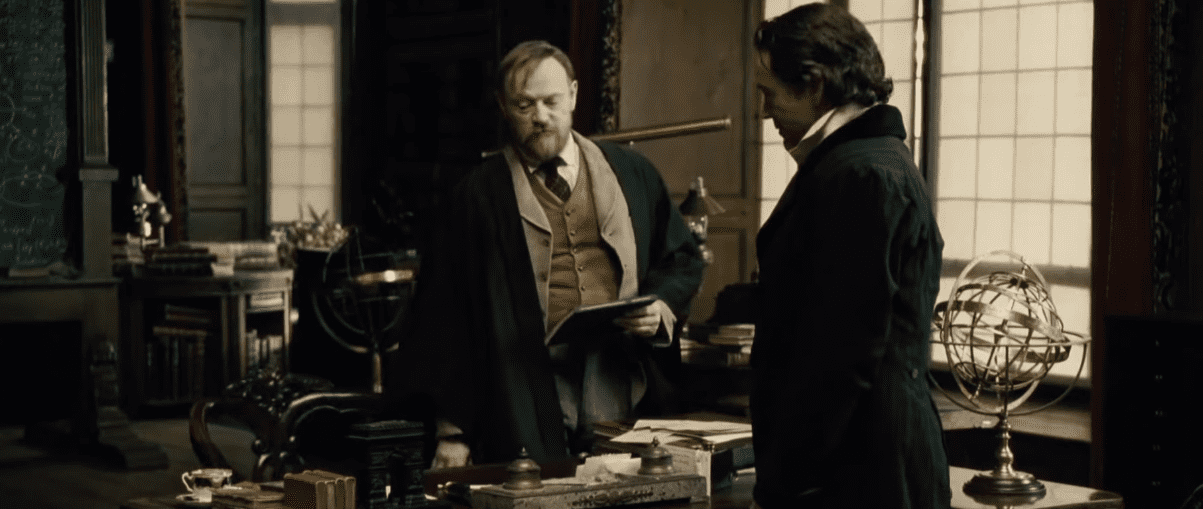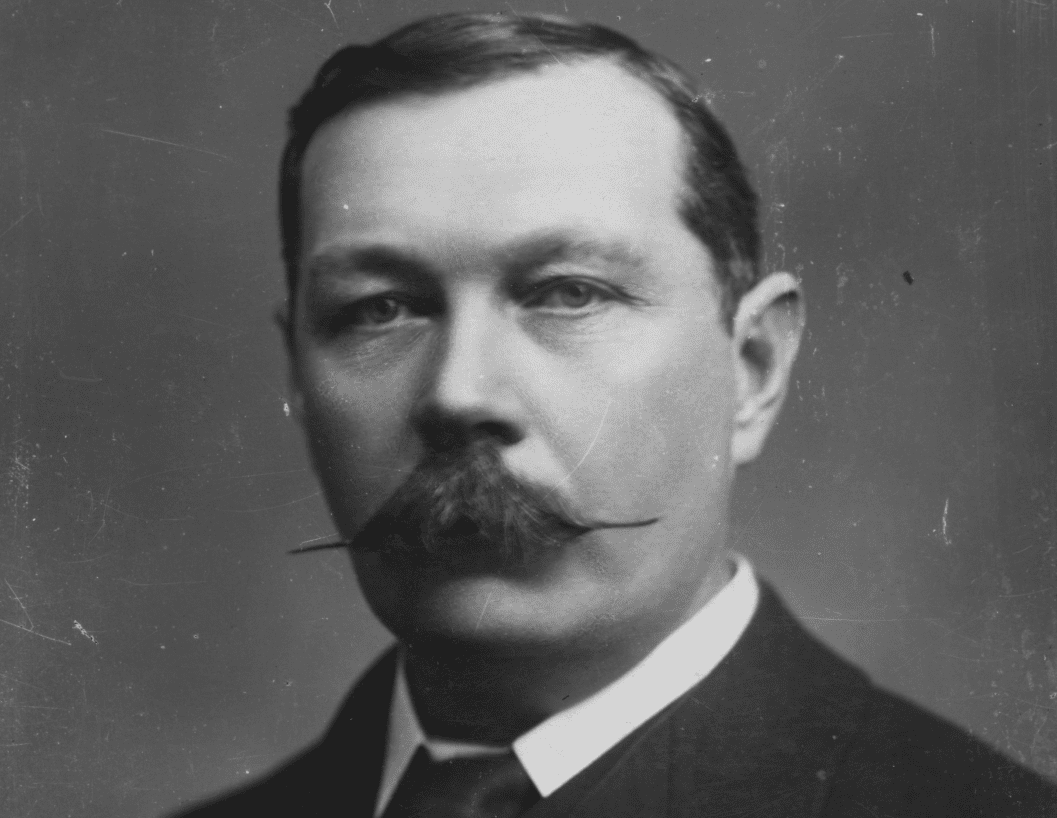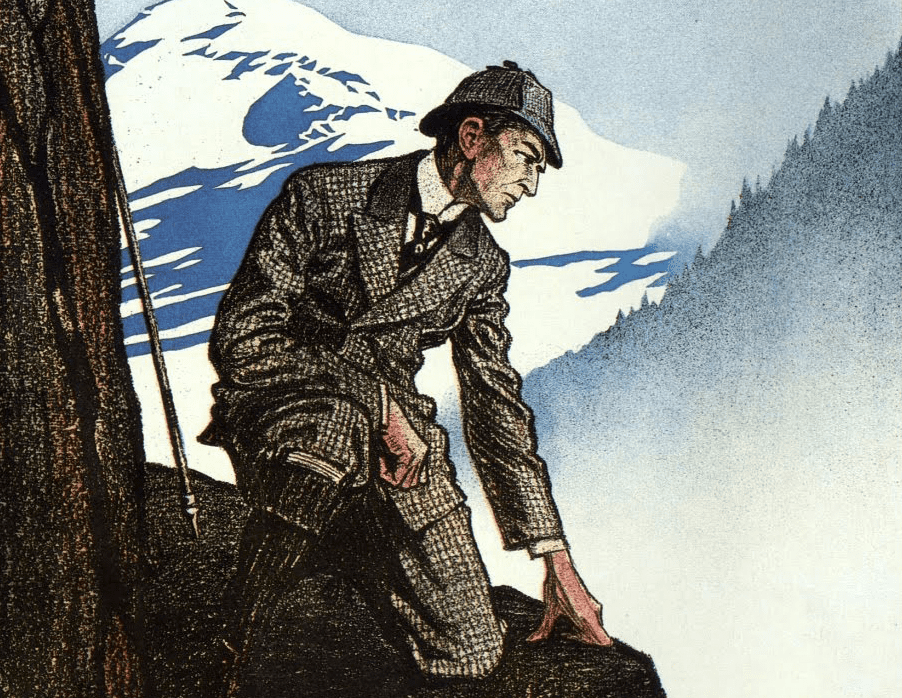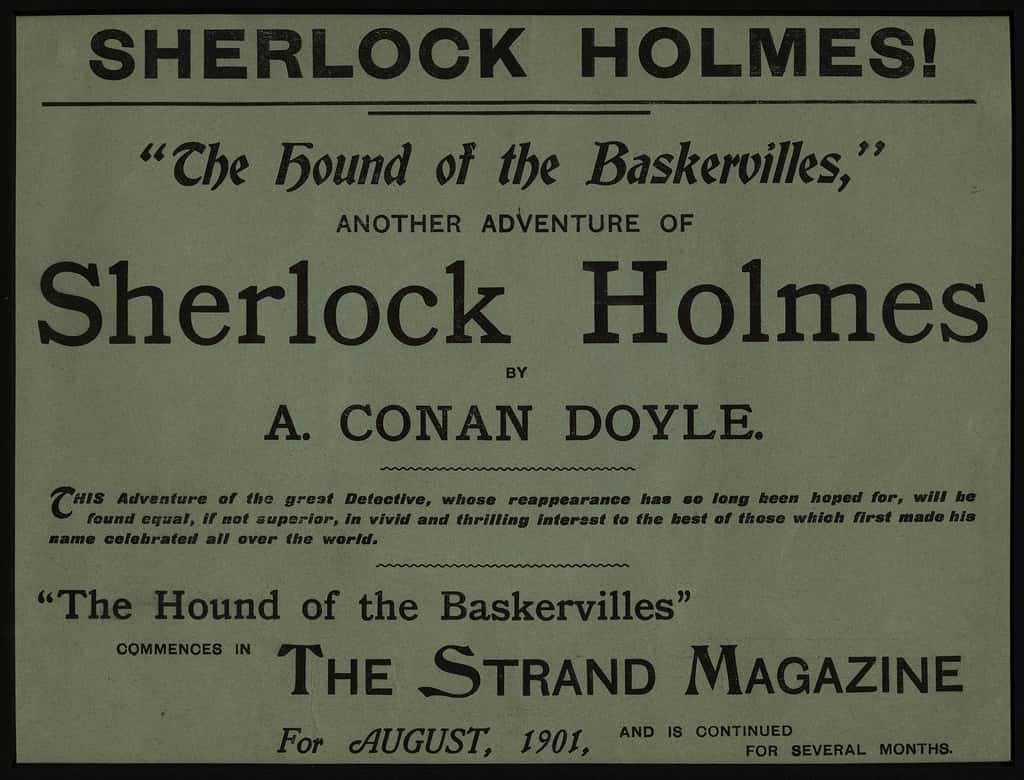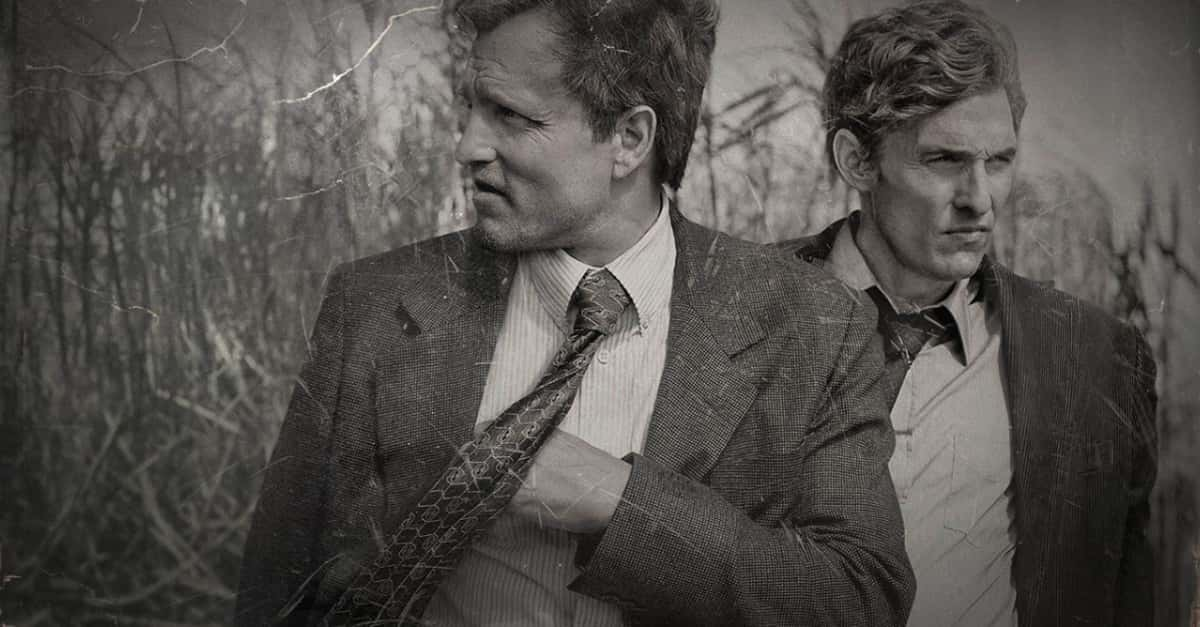Sherlock Holmes’ popularity transcends just about every barrier, from age to language. The character might be known best for the most recent TV and film adaptations of his adventures, but the world’s most popular detective has a long history. Here are 42 deductive facts about Sherlock Holmes.
Sherlock Holmes Facts
42. Mind and Body
2009’s Sherlock Holmes drew some criticism from the Sherlock “fans” who thought that Holmes could only fight with his mind. The hand-to-hand action sequences were viewed as a typical Hollywood change to a classic character.
However, in the books, Holmes is a good fencer and bare-knuckle boxer. In The Sign of Four, one of Holmes’ former opponents, a professional boxer, even tells Holmes he could have been a championship contender if he went pro.
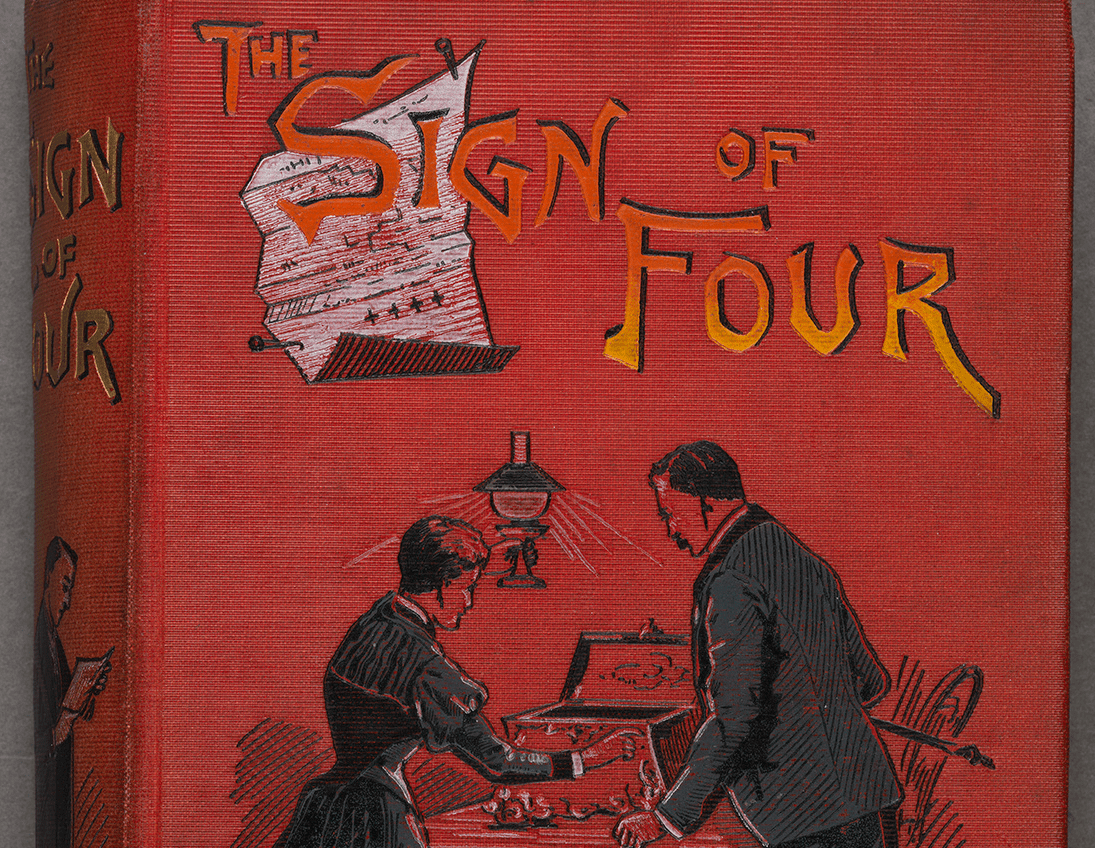 Wikipedia
Wikipedia
41. Head Case
Some portrayals of Holmes, including the Guy Ritchie films, are known for having the detective wear a “deerstalker” hat. The hat was once associated with hunters, but has become a key part of Holmes’ look, and the look of old-school detectives as a whole. Despite this, the type of hat that Holmes wears is never actually mentioned in the books. Credit for it goes to illustrator Sidney Paget, who added the feature when illustrating The Boscombe Valley Mystery.
40. Hoarder
Collector Glen Miranker has one of the largest collections of Sherlock Holmes’ memorabilia in the US. His collection includes everything from books to paraphernalia like cigar boxes with Holmes’ visage printed on them.
Miranker has been a fan of Holmes since he was a child and his collecting began when his wife gave him a first edition of The Casebook of Sherlock Holmes in 1977.
39. Debut
Sir Arthur Conan Doyle’s first Sherlock Holmes story was A Study in Scarlet, which was published in the magazine Beeton’s Christmas Annual in 1887.
Doyle had recently left medical school and was running his own clinic, but business wasn’t booming. The downtime gave him the freedom to write, cranking out the story in three weeks. Doyle left medical practice altogether after a series of Holmes’ stories were published in The Strand magazine in 1891.
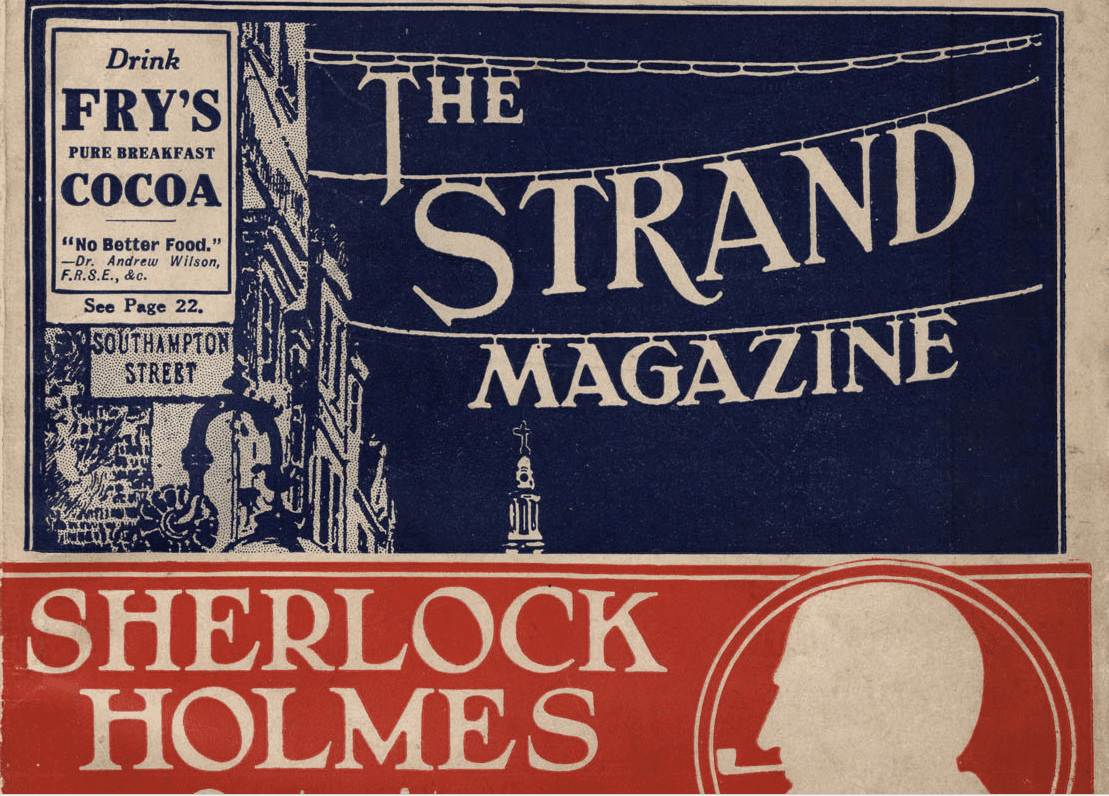 Wikimedia Commons Special Collections Toronto Public Library
Wikimedia Commons Special Collections Toronto Public Library
38. Still a Good Story
Sometimes Doyle wrote as many as four Holmes stories within two weeks. As a result, some of the finer details in the stories fall apart under scrutiny. In The Adventure of the Speckled Band the murderer controls a snake with a whistle and a bowl of milk. However, snakes don’t drink milk and they can’t hear.

37. Ruthless
In The Adventure of Charles August Milverton, Holmes recalls starting a relationship with a maid in order to get info on a case. Once Holmes got the info, he never spoke to the maid again.
36. No Brain Food
While we might like to grab some food during a study session, Holmes avoids food entirely when on a case. The detective believes eating slows down his brain.
Despite this, a cookbook named Dining with Sherlock Holmes: A Baker Street Cookbook was published, the author having deduced from source material that Holmes would have favored game meat when he made a meal.
35. Long Gone
Although Holmes’s popularity is still going strong, the last canon Holmes and Watson story was published back in 1927. Sir Arthur Conan Doyle ultimately wrote 56 stories and four novels about Sherlock Holmes between 1887 and 1927.
34. Mix up
Holmes and Watson lived at 221B Baker Street from 1881 to 1904. The address didn’t exist then and it doesn’t exist today, technically. There is currently a Sherlock Holmes museum that says it is on 221B Baker Street. In fact, the physical address is somewhere between 237-241 Baker Street, but the City of Westminster allows the museum to bear the address of 221B Baker Street.
33. Dear Mr. Holmes
When the Abbey National Building Society owned 237- 241 Baker Street, they were swarmed with mail addressed to Sherlock Holmes at 221B Baker Street. The bank actually hired a full-time secretary to help to handle the mail. Once the Sherlock Holmes Museum opened, the ANBS actually feuded with the museum over who should receive the mail, and the feud lasted for more than a decade. The matter was settled when the ANBS vacated the premises.
32. Put Some Pep in Your Step
When Doyle began writing Holmes in the late 19th century, cocaine was a new miracle cure that was used as a local anesthetic. The substance and its derivatives also found their way into wines and throat lozenges. Hence, Holmes actually used a “seven percent solution” at times to “escape from the commonplaces of existence.” As people began to realize the substance was addictive and harmful, Holmes’ stance on it changed. Eventually, Watson was able to wean him off his habit.
31. Mandela Effect
The phrase “Elementary, my dear Watson” doesn’t actually appear in any Doyle books. The closest Holmes comes to saying the iconic quote is “Elementary,” in The Crooked Man, “It was very superficial my dear Watson,” in The Cardboard Box and “Exactly, my dear Watson,” in three different stories. The exact phrase was first used by another author, P.G Wodehouse, in 1915’s Psmith, Journalist.
30. Lost Art
Aside from his boxing and fencing skill, Holmes is also skilled in the art of Bartitsu. The real-life martial art, Bartitsu (misspelled in Doyle’s works) was created by E.W. Barton-Wright, combining jiujitsu, kickboxing and stickfighting. The only explicit reference to Bartitsu in Doyle’s work is in The Adventures of the Empty House, where it is revealed that the fighting style allowed Holmes to triumph over Moriarty in a fight.
29. New Justice League
Batman might be known as the “World’s Greatest Detective,” but he met his match when he ran into Sherlock Holmes. In Detective Comics #572 (1987), Batman and Robin travel to England to stop Moriarty’s ancestor from assassinating the Queen. Holmes uses his Bartitsu skills to take down a thug Batman was chasing, and the team up ensues. Holmes was 33 when he debuted, so he’s over 100 years old in the comic, and still pretty spry for his age.
28. Methods
Although Holmes’ reasoning skills are often labeled deductive by Doyle and others, they are actually abductive. Abductive reasoning is focused on observing a situation and creating a hypothesis. In contrast, deductive reasoning is working from a set of facts to derive something specific, e.g., there are two suspects, and B was sleeping at the time of the murder, so the killer must be A.
 Wikimedia Commons Nevit Dilmen
Wikimedia Commons Nevit Dilmen
27. Wisdom of the Ancestors
Many fans will agree that Benedict Cumberbatch nails his role as Holmes in the 2010 BBC series. It might be something genetic, since he is actually related to Sir Arthur Conan Doyle.
Researchers from Ancestry.com discovered that the two are sixteenth cousins, twice removed. They share a common ancestor in Duke of Lancaster of Gaunt (that’s a mouthful). Gaunt is Doyle’s 15th great-grandfather and Cumberbatch’s 17th great-grandfather.
26. Bard of Avon
“The game’s afoot” is a catchphrase that is often credited to Holmes. However, Doyle took the line from Shakespeare’s Henry V. King Henry says the line at in Act III, Scene 1, at the end of a speech, “The game’s afoot: Follow your spirit…”
25. Mr. Worldwide
Holmes has over 300 societies dedicated to him. Generally, the American members call themselves Sherlockians and the British ones call themselves Holmesians.
Each sub-group also has its own name. One of the most popular ones is the Baker Street Irregulars, named after Holmes’ intelligence network of homeless children.
24. Tally
Although the young’uns might think of Robert Downey Jr. or Benedict Cumberbatch as the definitive Holmes, fans of the older media might think of Basil Rathbone. Rathbone starred in 14 Holmes movies throughout the 1930s and ‘40s.
23. So Hot Right Now
As a whole, Holmes has been portrayed in more films than any other literary human character, with 100 actors over 250 productions. However, when it comes to non-human literary characters, he's beaten by Dracula (half-vampire), with 272 appearances.
22. Sherlock Stans
221B Baker Street is never described in detail in Doyle’s works. The most readers get is “a couple of comfortable bed-rooms and a single large airy sitting-room, cheerfully furnished, and illuminated by two broad windows.” Yet there are still fans who continue to speculate on the real address that fuelled Doyle’s idea. Some collectors even have their own reconstructions of the sitting room, with one of the most famous ones being at the Sherlock Holmes Museum.
21.Clickbait
A third Guy Ritchie Sherlock film is in the works, with Robert Downey Jr. and Jude Law returning to play Holmes and Watson. The film is now slated for a December 25, 2020 release and some disreputable sources claimed that Law needed the film to happen sooner to “save his career” as the first two films apparently had. However, the quotes never came from Law’s mouth and Law is doing pretty well with his roles in the Harry Potter and Marvel franchises.
20. Across the Pond
More than 100 years after his inception, Holmes is still fashionable. Canadian Prime Minister Justin Trudeau dressed up as the detective for Halloween 2018. Trudeau went all out with the deerstalker cap, magnifying glass, and a pipe.
19. The Shoulders of Giants
T.S Eliot has famously said that “every writer owes something to Holmes… he is just as real to us as Falstaff or the Wellers.” More so, Eliot admires Holmes for the depiction of late 19th century England, where life is “romantic, always nostalgic but never silly.”
18. Golden Years
After years of catching bad guys, Sherlock Holmes eventually retired and became a beekeeper.
However, Holmes’ services were still in demand and he was forced out of retirement by the British government, who wanted him to investigate the source of info leaks.
17. The Best a Man Can Get
American actor William Gillette was actually the first person to portray Sherlock Holmes. Gillette portrayed Holmes for the first time in an 1899 stage play, and performed as the character more than 1,000 times.
He also introduced the curved briar pipe as a part of Holmes’ wardrobe.
16. Hack a Dart
Since Holmes smoked, cigarette companies were quick to seek him out for their ads. By the 1980s, over five different brands were using Holmes’ image in their advertising, such as Chesterfield and Players.
15. Black Sheep
Mycroft Holmes might get some screen time in Sherlock Holmes: A Game of Shadows and Sherlock, but the character only appears in two of Doyle’s stories: The Adventure of the Greek Interpreter and The Adventure of the Bruce-Partington Plans.
14. The Outer Limits
In Intelligence of Sherlock Holmes: And Other Three-pipe Problems, John Radford estimates that Holmes’ IQ is 190. In comparison, Einstein’s was 160 and the average is 100-110.
13. Rolls Off the Tongue
Holmes’ first name was originally going to be Sherrinford. Some sources believe Sherrinford was a reference to two cricketers, since Doyle was a big fan, who bore the names Sherwin and Shatlock. Sherlock may have emerged as another amalgamation of the two names.
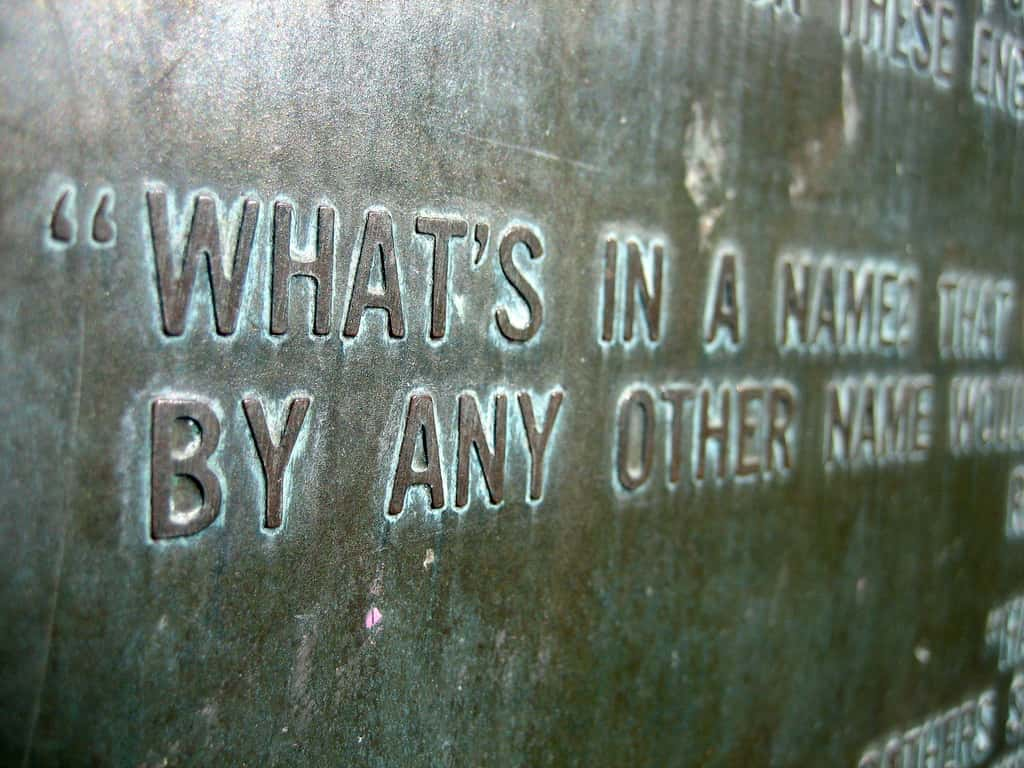
12. Sophomore Success
The first Holmes story, A Study in Scarlet, wasn’t a big hit. The magazine in which it was published didn’t sell well and the story itself didn’t get much attention.
Things got better when Doyle attended an 1889 dinner party with Joseph Stoddart, editor of Lippincott’s Monthly Magazine. Stoddart was a fan of A Study in Scarlet and convinced Doyle to write another story for Lippincott. Another attendee, Oscar Wilde, also agreed to write for the magazine. Wilde’s A Picture of Dorian Gray and Doyle’s A Sign of Four were both published in 1890.
11. Pioneer
Some of Holmes’ methods for catching criminals preceded their use by police agencies. Holmes identified blood stains, used visible data to judge the distance of a gunshot and also identified a suspect by their belongings—a typewriter, to be specific.
10. Lineage
Throughout 50+ Holmes stories, we never actually find out the names of Sherlock’s parents. The only information we get on an ancestor is that Holmes’s great-uncle was the French painter, Horace Vernet. We also get a passing mention to Holmes’ ancestors being important public figures, or “squires.”
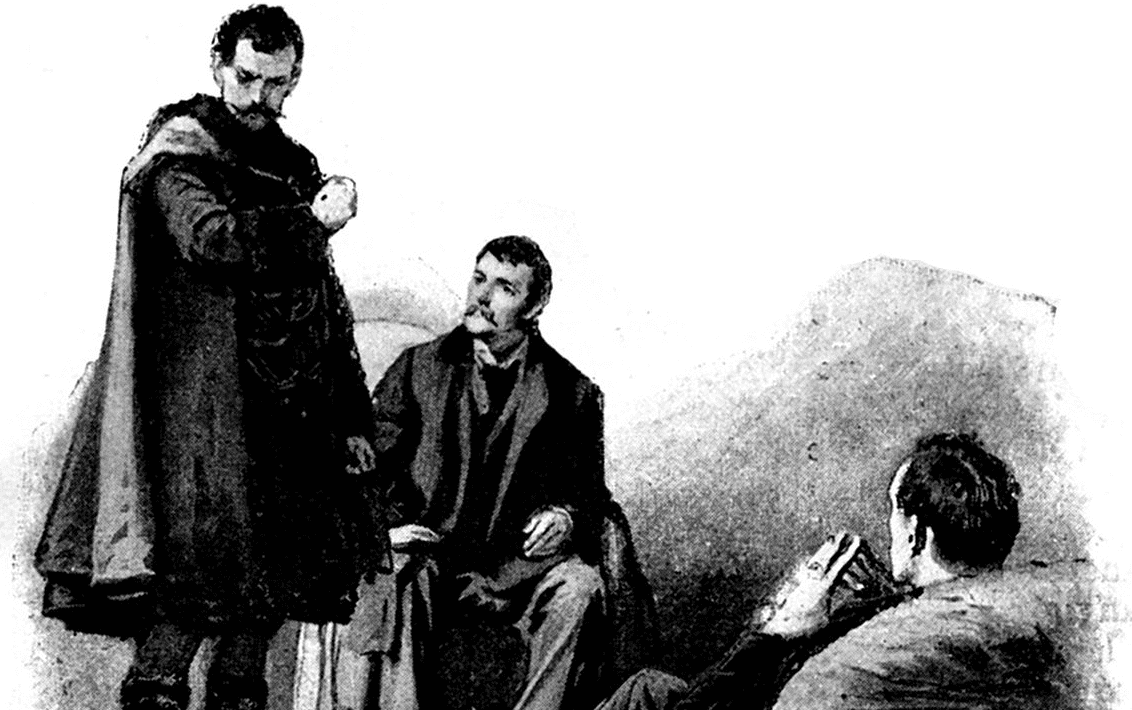 Wikimedia Commons The Strand Magazine
Wikimedia Commons The Strand Magazine
9. Price Gauging
When Sherlock Holmes’ clients didn’t have much money, he would only ask them for enough to cover some basic expenses during the investigation. When his clients were rich, like the Royal House of Scandinavia, Holmes took full advantage and upped his prices. It is the money he got from these high-profile jobs that allowed him to support himself and Watson during their less glamorous gigs.
8. Hard Drive
Sherlock fans might remember the episode where Holmes reveals he doesn’t know that the Earth revolves around the sun. This tidbit is pulled straight from A Study in Scarlet, where Holmes describes his mind as a space with finite capacity for info. Since the Earth’s revolutions don’t affect his cases, Holmes doesn’t free up valuable space for that fact.
7. Old School
Sherlock added the mind palace to Holmes’ mythology. In the show, Holmes can visualize a physical location that houses his memories and knowledge. When he retreats to this physical space in his mind, he can then sift through all of his mind’s knowledge to find the info he needs in any given situation.
The mind palace dates back to Ancient Greece and is credited with poet Simonides of Ceos. The concept declined with the invention of the printing press but regained some popularity in the 20th century, when international memory competitions became more popular and contestants needed a way to hone their memory.
6. Teacher’s Pet
Anyone who watches BBC’s Sherlock knows Holmes is infamous for sifting through multiple scenarios or facts to narrow down a specific conclusion. Holmes is believed to have been inspired by one of Sir Arthur Conan Doyle’s professors, Dr. Joseph Bell, of the University of Edinburgh. Bell could allegedly decipher a patient’s occupation and ailment just from their appearance.
5. Shoutout
Dr. Moriarty might be one of three Sherlock Holmes characters most people know, next to Holmes and John Watson. A 2018 book named New Light on George Boole argues that Boole, a mathematics professor, was the inspiration for Holmes’ nemesis.
Boole and Moriarty share several similarities. Both were mathematical geniuses, both were chairs at small provincial universities and they both had an interest in astronomy. Boole and Moriarity also looked similar, based on the comparison between a Boole photo and a Moriarty illustration.
4. Mindhunter
Although BBC’s Sherlock considers himself a “high-functioning sociopath,” some analyses disagree with the diagnosis. While Holmes does share the obsessive behavior and emotional distance of some sociopaths, he also has a strong moral compass and a good understanding of human emotions—even though he might keep his own hidden.
Judging by Holmes’ behavior, such as his narrow range of interests and attachment to routines, some psychologists think Holmes may have Asperger syndrome.
3. Hi I’m Charles Doyle
Doyle’s artist father, Charles Altamont Doyle, actually did the illustrations for early Sherlock Holmes stories, but he was tragically haunted by a terrible disease, leaving Doyle without a father for much of his childhood. He battled with alcoholism and depression for his entire life, and he was in and out of rehabilitation centres and lunatic asylums for many years. He hated being institutionalized, and he even sent bizarre works of art to his family as a painful cry for help. These works were said to be "sort of bucolic phantasmagoria: mammoth lilypads and leafy branches, giant birds and mammals, sinister blossoms sheltering demons and damsels alike." He sent these drawings and paintings to his family to try and prove that he didn't belong in an institution—though I don't think that was the best plan, in hindsight.
2. Retcon
Doyle reached a point in his career where he wanted to leave the mystery genre, but of course, Sherlock Holmes was holding him back. In The Final Problem, Doyle killed off the detective, after having the hero slip over Reichenbach Falls with Moriarty. Doyle got the idea for the death after coming across the falls during a hike in Switzerland.
However, fans demanded more Holmes. As a result, the hero returned in The Adventure of the Empty House.
1. Customer Service
Following Holmes’ “death” in The Final Problem, over 20,000 people canceled their subscriptions to The Strand magazine, where Doyle’s stories appeared.
Sources: 1, 2, 3, 4, 5, 6, 7, 8, 9, 10, 11, 12, 13, 14, 15, 16, 17, 18, 19, 20, 21, 22, 23, 24, 25, 26, 27, 28, 29, 30, 31, 32, 33, 34, 35, 36, 37, 38, 39


